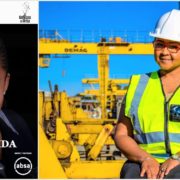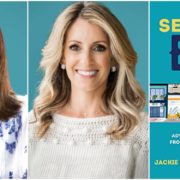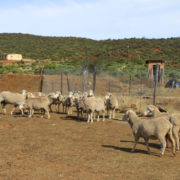by Lionesses of Africa Operations Department
As far as business is concerned, ’Luck’, ‘Hope’, ‘Fear,’ are all four letter words (you know, the ones our Mothers always told us not to use), for a reason. In business we have to avoid relying, or getting carried away, or even dragged down by them. ‘Luck’ more often than not, is simply down to ‘Timing’ – good or bad, and timing we can work on (see our article here). ‘Hope’ is often involved because of bad planning on our part (and we have all been there at some point in our lives). ‘Fear’ is our sub-conscious telling us that we need to be more careful in the future before committing too far.
Still, these intangibles do play a part in our day-to-day lives, so they cannot be ignored. Certainly ‘Luck’ is there and without doubt flows in one direction. Somedays we can do no wrong, we arrive at a customer’s, they welcome us with open arms, sign the deal and at the next customer, the same, plus the following five. We are invincible! No idea what went on, but ‘Luck’ was certainly with us that day… A month later, no meetings, customers will not even pick up the phone, our office is looking like a ghost town with only tumbleweed for company… What happened? What was the differing factor or factors that on one day gave sunshine and roses, all the planets aligning and the customers singing our praises, whilst the next – constant rain with our umbrella left at home?
Who knows! It’s a mystery and certainly no surprise to find that the Roman goddess of luck, Fortuna, was blind – ‘Fortuna caeca est’ – ‘Luck is blind’. Yet because Luck was so important for the Romans (as with so many cultures), her day was none other than midsummer’s day, June 24th, when so many in Rome would float down the river Tiber to her Temple where they would spend the day celebrating before having to swim or row against the river back to their homes in the City. Clearly Fortuna wished to remind her followers that swimming against Luck was not that easy! Indeed for centuries, even after the worship of the Roman gods and goddesses had long gone, the wheel of fortune stayed, showing the fickle nature of Luck. One day flowing with us, the next against.
We are certainly getting the hint here, ‘Luck’ cannot be controlled, so what are we to do? Simply believe that our fate is already written? If so, this would not be one of our finest suggestions on how to run a business! Instead we would propose that rather than work out all of the factors that made the planets align for that particular day, week or month, we should simply smile, enjoy, and learn how to ride the wave when it is with us, and when not, how to turn it back in our favour.
It will come as no surprise for many of our readers who are golfing fans that we should take this moment to quote the great Arnold Palmer who said: “It’s a funny thing – the harder I practice the luckier I get!”, and indeed there is so much truth in this. Mr. Palmer never went out determined to hit the ball 250 yards, but would instead practice his backswing for hours until it was as good as possible, then practice his impact position for hours, then his follow through, then…then… The final distance would look after itself. Tiger woods hit a 498 yard shot in 2002, (ok, technology improved), but he too was a master of many small improvements making a huge and in his and Palmer’s cases, consistent impact.
For these greats, these small sized improvements for a greater result over time become a consistent muscle memory. As for running our business the same is true. The harder we work on our structures, processes and platforms, and the better we get at showing the world through our actions, our purpose, so the ‘luckier’ we get, or rather ‘better’. Better at answering customers queries and complaints, better at finding solutions to customers issues, better at filling our warehouse with the right items and the most efficient amount, better at lowering our DSO (Days Sales Outstanding), and reducing our debtors’ book.
Rather than announce a huge dream – “We shall be No.1”, reduce it to bite sized chunks – each day we shall improve in some small way and this is especially true when it comes to showing your purpose. We previously quoted a certain Larry Fink, CEO of BlackRock, the world’s largest investment firm from his annual letter to shareholders (here). In this he wrote:
“Employees need to understand and connect with your purpose; and when they do, they can be your staunchest advocates.” Importantly he then takes this to the next level: “Customers want to see and hear what you stand for as they increasingly look to do business with companies that share their values. And shareholders need to understand the guiding principle driving your vision and mission. They will be more likely to support you in difficult moments if they have a clear understanding of your strategy and what is behind it.”
With decent structures in place, with your company understanding and trusting in your clear purpose and with the company moving as one, sales teams start to feel they are lucky and indeed they are – lucky to be working in such an organisation. Sales teams who feel they are ‘lucky’ go on to do great things, so long as there is pressure on them to not relax, but to ‘ride the wave’.
It is far too easy for Sales to think that once they have made budget for the month they can sit back, but this is where luck starts to turn. If there is one message that should be pushed into the Sales Team’s mind and especially when they are ‘on a roll’, it is that they built their budget, they said they would produce ‘x’, they agreed to the 10% or 20% increase that you as CEO imposed on their numbers, after all they could have argued their case against it, but didn’t. It was no one else. So this is their budget, they own it. This means that their budget is a starting point not a final goal. When ‘luck’ is with them, they must be encouraged to ride it for all it is worth – given the crazy last few years, who knows how the world will be in a year’s time, let alone 6 or even 3 months, they must be made to understand this.
Check the customers who have not purchased this year (we are now at the end of Q1 2022, if your sales team have just concentrated on their top customers, that’s just plain lazy). When sales are in luck, they think differently, act more confidently and success feeds on this. This is the perfect time to approach those hard to satisfy customers, or break the bottleneck of those who haven’t purchased recently.
Momentum is so fickle at the best of times, but when it is in your favour, you have to ride it. You don’t ride a wave lying on a sun bed with a Piña Colada by your side, but on a surf board, moving at speed, changing your balance to meet the differing currents and ripples, being nimble. This is hard work – no time to relax! Because…when luck changes direction and starts to flow in the opposite direction, much like our swimmers in the River Tiber, it is seriously tough going. So what to do when that happens?
Africa’s coastline with its huge oceans have some of the most dangerous Rip Tides in the world. All coastal swimmers are taught not to fight the tide if they get caught in it, rather to relax, to swim parallel to the beach and escape out of the narrow but dangerous tide flow that way. They will then find themselves in calmer waters and be able to start swimming back to the dry land. Those who try to fight and swim against the Rip Tide find the true power of Mother Nature and nearly always drown.
The same is true of luck. When luck turns it is a serious power against you. To fight against it, to continue knocking on the doors of all the customers who have said no, or to send countless emails to the same will gain very little (other than annoy them!). So rather than fight against this tide, take a moment, swim sideways for a while and go back to basics. Believe in your structures, processes and platforms – they worked before, nothing has fundamentally changed (a fundamental change is like door to door selling during Covid – that was not a wave but a Tsunami). Take a moment to check your purpose and that is it firmly aligned with the direction of your company and that your employees are fully invested in this.
Recognize this is only a short term set back, your customers are taking a breather, taking stock, watching the markets (without doubt some of the strangest times ever, given supply chain issues). Swim sideways for a time until you start to see calmer waters. What’s the worse that can happen? The 4th day in a row that you and your Sales Team are sitting quiet in the office staring at the computer and no emails? With structures, processes and purpose tightened, this time has been given to you. Use it – be bold, be innovative, be crazy – as Melanie suggested in one of her letters this week – grab your team and go for a walk in the park!
Now more than ever (and this is especially true if luck happens to be flowing against you), as Melanie wrote (here) “It’s not about putting KPIs in place for employees and measuring their levels of innovative thinking or their outputs on new ideas – instead it’s about putting a premium value on thinking about how to do things differently, better, smarter, quicker. It’s about creating relaxed, creative environments that encourage and stimulate blue sky thinking, that bring together like-minded people to bounce ideas around and collaborate…If businesses really want to innovate, to find solutions to challenging problems and to be market leaders, then putting a premium value on blue sky thinking and giving employees the space to do just that, is the way to go.“
So stay off the sun-bed (most don’t float anyway) and pick up the surf board. Whether the tide is with you or against – use the time wisely to tighten your structures and procedures while giving your purpose a good spring clean. Make the small improvements whilst keeping contact with your customers, so that whether they are taking a break or not, they will find a far better company, more efficient, more nimble, more forward-thinking, more innovative and a stronger partner with a purpose aligned for the next exciting part of your journey together. As Arnold Palmer knew only too well – luck has nothing to do with it!
Stay safe.

















